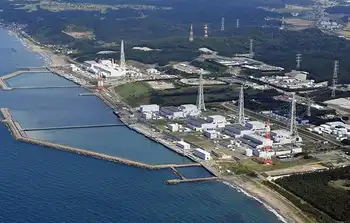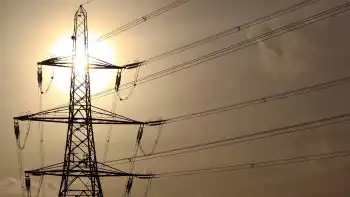Climate change poses high credit risks for nuclear power plants: Moody's

Protective Relay Training - Basic
Our customized live online or in‑person group training can be delivered to your staff at your location.

- Live Online
- 12 hours Instructor-led
- Group Training Available
Nuclear Plant Climate Risks span flood risk, heat stress, and water scarcity, threatening operations, safety systems, and steam generation; resilience depends on mitigation investments, cooling-water management, and adaptive maintenance strategies.
Key Points
Climate-driven threats to nuclear plants: floods, heat, and water stress requiring resilience and mitigation.
✅ Flooding threats to safety and cooling systems
✅ Heat stress reduces thermal efficiency and output
✅ Water scarcity risks limit cooling capacity
Climate change can affect every aspect of nuclear plant operations like fuel handling, power and steam generation and the need for resilient power systems planning, maintenance, safety systems and waste processing, the credit rating agency said.
However, the ultimate credit impact will depend upon the ability of plant operators to invest in carbon-free electricity and other mitigating measures to manage these risks, it added.
Close proximity to large water bodies increase the risk of damage to plant equipment that helps ensure safe operation, the agency said in a note.
Moody’s noted that about 37 gigawatts (GW) of U.S. nuclear capacity is expected to have elevated exposure to flood risk and 48 GW elevated exposure to combined rising heat, extreme heat costs and water stress caused by climate change.
Parts of the Midwest and southern Florida face the highest levels of heat stress, while the Rocky Mountain region and California face the greatest reduction in the availability of future water supply, illustrating the need for adapting power generation to drought strategies, it said.
Nuclear plants seeking to extend their operations by 20, or even 40 years, beyond their existing 40-year licenses in support of sustaining U.S. nuclear power and decarbonization face this climate hazard and may require capital investment adjustments, Moody’s said, as companies such as Duke Energy climate report respond to investor pressure for climate transparency.
“Some of these investments will help prepare for the increasing severity and frequency of extreme weather events, highlighting that the US electric grid is not designed for climate impacts today.”











